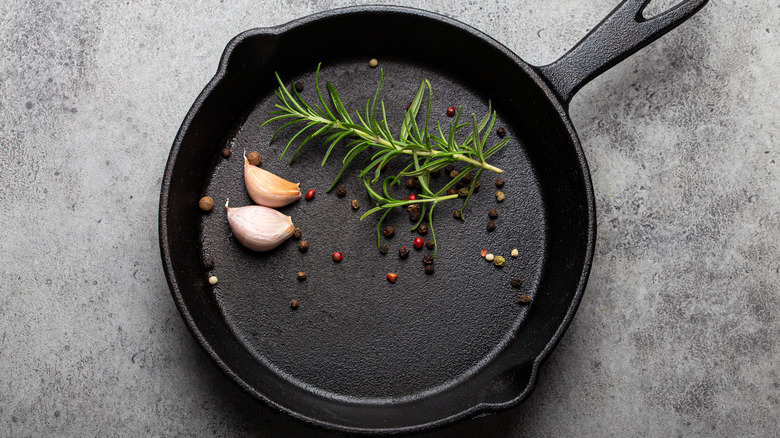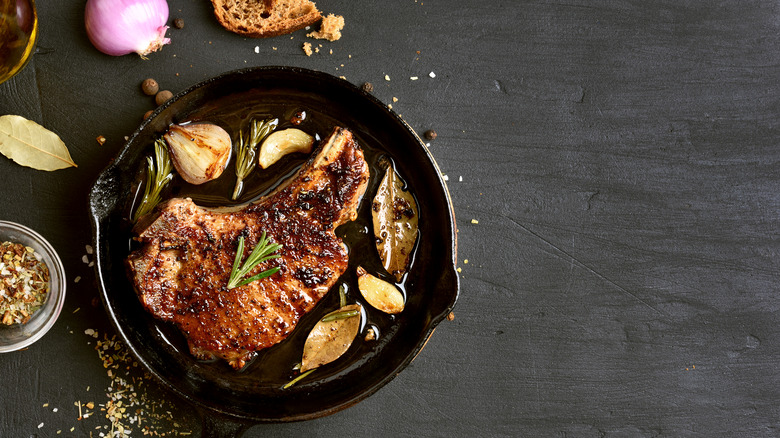What To Consider When Cooking Pungent Foods In Cast Iron
One of the most popular materials for cookware is cast iron. Per Prudent Reviews, cast iron cookware is safe to use with grills, stoves, and ovens, and is less expensive than stainless steel cookware. Furthermore, cast iron can withstand higher temperatures, and because it's thicker and more durable, it lasts longer than other materials.
However, cast iron pans also come with a few problems. Cast iron can rust, so it's important to re-season your cast iron pan every so often by rubbing it with oil and baking the oil into the surface. Another common issue is that cast iron can react with certain acidic foods, particularly tomatoes and wine-braised meats. For this reason, professionals recommend not cooking acidic foods in a cast iron pan.
A third problem that can arise with a cast iron pan ties back to both seasoning and the material's reactivity to acidic foods. If you've ever cooked something stinky in your cast iron pan — like garlic, peppers, or fish — you know we're talking about the residual stink.
Cast iron likes to hang on to strong smells
Even though seasoning your cast iron is supposed to keep it easy to clean, cast iron is still reactive to acidity, and it knows how to hang on to a strong smell. According to Reader's Digest, scents from foods like stinky cheeses, certain fish, and peppers are especially prone to lingering in your cast iron.
Before you swear off cooking fish in your cast iron ever again, there are ways to make the best of this unfortunate residual stink. Per Kitchen Snitches, one way to neutralize the worst of the stink is to place your cast iron in the oven at 400 degrees for 10-15 minutes, while a second way is to fill the pan with salt water and bring it to a boil on the stove for 10-15 minutes. Both of these methods are sufficiently effective, but if your cast iron still smells, we have one last bit of advice for you.
Say you cooked something garlicky in your cast iron and you can't get the smell out. Don't worry, the stink will fade eventually, but in the meantime, only use your cast iron for recipes that play well with garlic. This way, your food's taste won't be tainted.

